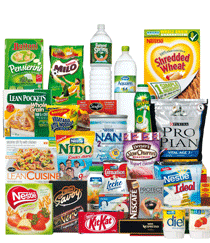Many processors still have their doubts about the value of bio-based plastics, with concerns including their recyclability, cost, and performance, but OEMs' interest in these materials is clear. In these recent examples, the carmaker is sourcing a bio-based TPU for console doors while the FMCG giant will use a PLA-type compound for packaging, but will not yet reveal for which products.
November 29, 2010
Many processors still have their doubts about the value of bio-based plastics, with concerns including their recyclability, cost, and performance, but OEMs' interest in these materials is clear. In these recent examples, the carmaker is sourcing a bio-based TPU for console doors while the FMCG giant will use a PLA-type compound for packaging, but will not yet reveal for which products.
Ford Motor Company Inc. is collaborating with thermoplastic polyurethanes (TPU) supplier Merquinsa to use that company's its Pearlthane ECO brand of TPU for what Merqunsa calls "an automotive industry first" in its use of bio-based thermoplastic polyurethanes. Specifically Ford will overmold the bio-based TPU onto moldings made from recycled acrylonitrile butadiene styrene (ABS) for the console doors on the Lincoln MKZ. The companies reckon this will reduce the carbon footprint of the part by as much as 40%. Being replaced is a similar material combination which used standard petroleum-based TPU and virgin ABS, according to a Merquinsa spokesperson in answer to a question from Plasticstoday.com.
|
Nestlé will use bio-based plastics to reduce packaging's environmental impact. |
Like many of its carmaking competitors, Ford is actively seeking to source more bio-based materials or materials based on renewable resources or recyclate for use in its vehicles. That goal led Ford to Merquinsa and its material, which is renewable-sourced (bio-content is from 20% up to 90% according to ASTM D6866) and has properties comparable to petrochemical-based TPU.
Ford claims to have developed a comprehensive resin strategy that requires the use of recycled plastics for underbody and aerodynamics shields, fender liners, splash shields, stone pecking cuffs, and radiator air-deflector shields manufactured in North America. Since 2009, these parts have been made out of post-consumer recycled waste from detergent bottles, tires and automotive battery casings.
In its sustainability report, the carmaker notes that vehicles in North America typically are composed of 20-25% post-consumer recycled material by weight, primarily due to the extensive use of metals with recycled content. Ford is working to find new uses for recycled materials in the non-metallic portions of the vehicle.
Merquinsa introduced the Pearlthane Eco materials to the market in late 2007. According to the materials supplier, Ford has realized a cost savings with the TPU/ABS parts, too. Merquinsa's headquarters are in Barcelona, Spain, with regional centers in North America and in Hong Kong.
In related news Nestlé, the largest fast moving consumer goods (FMCG) company in the world, will work with Cardia Bioplastics and that company's bioplastics to reduce the environmental impact of as-yet unidentified packaging. The scale of the agreement also is not being made public. Carida recently announced plans to expand its production site in China.
The plastics supplier's managing director, Frank Glatz, said, "Collaborating with Nestlé presents an exciting opportunity to develop high-performance packaging with lower environmental impact...Our proprietary multi-layer flexible film and rigid packaging developments are important offerings in meeting demanding packaging performance requirements."
Cardia supplies compounds called Cardia Biohybrid that are based on a blend of thermoplastic starch with standard thermoplastics, as well as a compostable plastic. Grades are offered for flexible film extrusion, injection- and blowmolding, foam, and coating applications. Cardia Compostable B-F, a grade for blown-film extrusion, is a biodegradable and compostable resin based on a blend of thermoplastic starch (TPS), biodegradable polyesters, and natural plasticizers.
About the Author(s)
You May Also Like



